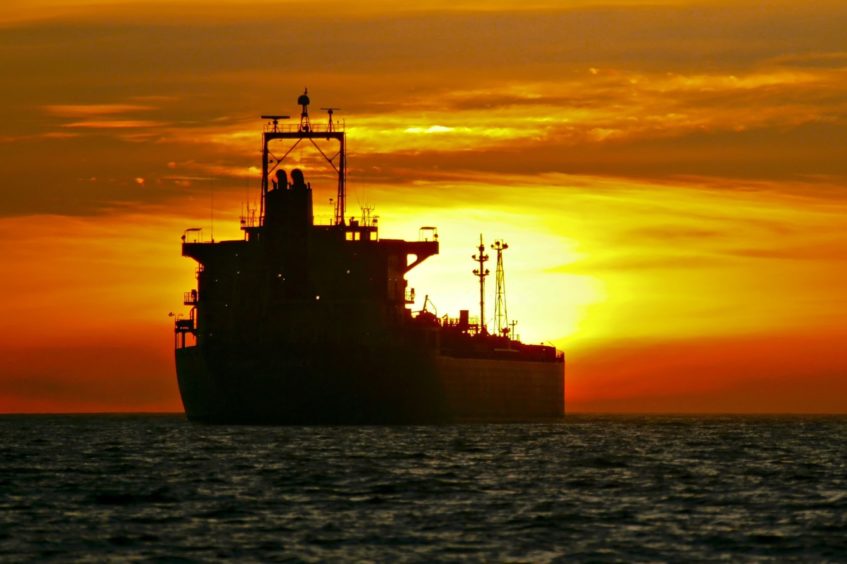
The island nation of Palau says a tanker that recently loaded Venezuelan crude was using a false signal to disguise its identity, potentially putting the Pacific country in the crosshairs of U.S. sanctions.
Palau is asking Venezuela to investigate the vessel that claimed last month to be the Ndros. The Ndros was a Palau-flagged ship that was scrapped in Pakistan in 2018, and so couldn’t be the vessel that appeared in December off the coast of Venezuela, according to a letter dated Dec. 16 that the government of Palau shared with Bloomberg.
“It appears that this vessel is claiming to be registered with the Palau International Ship Registry. This claim is false,” Palau’s ministry of state said in the note to Venezuela’s foreign affairs ministry. “It therefore appears that the vessel is using a falsified AIS signal in order to mask its true identity.” The letter was delivered to several Venezuelan embassies, including the one in Tokyo, says Steven Kanai, a special assistant to Palau’s president on international maritime matters and foreign relations.
The tanker that loaded in Venezuela was using a practice known as “spoofing,” where vessels send a signal with another ship’s registration number under the maritime industry’s Automatic Identification System, according to London-based ship tracker Windward Ltd. If so, it would represent a new tactic in the cat-and-mouse maneuvers deployed by companies trading oil with Venezuela in defiance of U.S. sanctions.
Venezuela continues to export crude even as U.S. sanctions have discouraged most shipping and trading companies from doing business with Petroleos de Venezuela SA, or PDVSA.
Oil tankers going to Venezuela have used a variety of methods that make detection difficult, such as turning off their transponders, obscuring ship names painted on hulls or using fake names in shipping documents, people with knowledge of the situation have previously told Bloomberg.
Over the past six months, the names of 13 vessels that are registered as broken-up appeared in Venezuelan crude-loading programs seen by Bloomberg. The Ndros, though, was the only one among those names to appear off the coast of Venezuela by satellite signal.
An official at Venezuela’s foreign ministry in Caracas said it didn’t receive any communication from the Palau government. The ministry and PDVSA didn’t immediately comment on whether they were aware of the false identity of the vessel claiming to be the Ndros.
The use of spoofing was mostly unheard of in South America, said Dror Salzman, research manager at Windward, which uses artificial intelligence and satellite images to monitor shipping around the globe.
“It’s among the most advanced deceptive practices used in the industry,” he said in a phone interview from Tel Aviv.
It can be done by hooking up equipment called software defined radio to the ship, said Marco Balduzzi, a senior researcher at Tokyo-based global cybersecurity firm Trend Micro Inc. The gadget, which is the size of a book, can be bought online. AIS satellite signals don’t use encryption.
“Law enforcement is more than aware that you can’t trust AIS signals alone,” Balduzzi said from Bergamo, Italy. “The technology is broken and should be replaced as monitoring ships has become increasingly important to fight either smuggling or sanction violators.”
The tanker that docked in Venezuela in December claiming to be the Ndros was actually the Liberian-flagged Calliop, Salzman said, citing satellite data compiled by Windward. The Calliop has also operated using the signal of the Iranian-flagged Sea Cliff, according to Salzman.
Reuters had previously reported that the Calliop masked its identity as the Ndros.
The Calliop is registered to Hong Kong-based Oderand Shipping SA. Ship Management Services Ltd, also based in Hong Kong, is listed as the ship manager. Neither could be reached for comment.
Meanwhile, the Palau government is still waiting for a response to the diplomatic note it sent to Venezuela, says Kanai. The island nation 600 miles east of the Philippines is trying to reach out through other channels, he said.
A vessel that flies the Palau flag must follow both national and international law, which prompted the country to take action, Kanai said.
“To do otherwise would allow bad actors to tarnish Palau’s name and the reputation of its flag, as well as to engage in illegal activities without consequence,” he said.